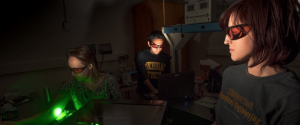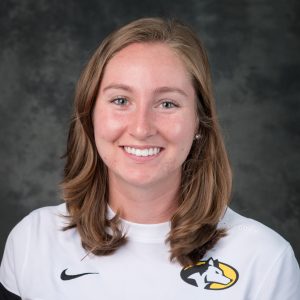 In a student-led study, one hour of mindfulness meditation was shown to reduce anxiety and some cardiovascular risk markers.
In a student-led study, one hour of mindfulness meditation was shown to reduce anxiety and some cardiovascular risk markers.
It sounds like a late-night commercial: In just one hour you can reduce your anxiety levels and some heart health risk factors. But a recent study with 14 participants shows preliminary data that even a single session of meditation can have cardiovascular and psychological benefits for adults with mild to moderate anxiety.
John Durocher (Bio Sci) is presenting the work of a team of Michigan Tech researchers about mindfulness meditation and its ability to reduce anxiety at the 2018 Experimental Biology meeting this week in San Diego, which is attended by approximately 14,000 people.
Read the full story on mtu.edu/news.

 A moment that I thought about for many years had finally come.
A moment that I thought about for many years had finally come. Michigan Tech students interested in medicine, veterinary medicine and other health-related professions participated in the
Michigan Tech students interested in medicine, veterinary medicine and other health-related professions participated in the